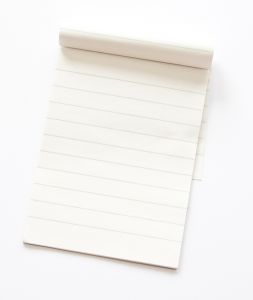When it comes to getting into law school, there is a heavy weight on pure numbers—LSAT and GPA; but, other elements of your application, such as your personal statement and letters of recommendation, can certainly help tilt the scales in your favor; and get you a spot over another candidate with a similar level of academic performance. What the letters cannot do, however, is cancel out any glaring weaknesses in the application, such as poor grades or a low LSAT score. You want to give some serious thought to securing your letters so they have the maximum impact on your chances of admission; here are some important considerations.
Considerations for Drafting Your Own Letters
When securing letters of recommendation, many people may be interested in drafting their own letters to make sure they paint a positively glowing picture of themselves and include everything they want to convey to the admissions officers; but, you are strongly advised against doing this. Many admissions counselors have noted they can often tell when a letter was drafted by the applicant because the writing style is very close to the application; furthermore, it is almost impossible to write a letter from the perspective of an employer or professor without actually being that person. If anyone you are approaching for a letter presses you to prepare a draft, consider finding someone else. The law school will not look favorably upon the letters if they think you had a heavy hand in writing them.
Should You Sign the Waiver?
Whether you are choosing to send your letters to the Law School Admissions Council to be distributed to all the schools you are applying to, or will be sending the letters yourself, you need to decide if you will sign the waiver stating you will not see your letters once they have been finished; it is highly recommended that you do this since the purpose of the letter is to provide a candid assessment of your abilities; signing the waiver shows that you did not try to affect the final product in any way by requesting changes to the letter to reflect on your more favorably. Letters without waivers may not be given as much weight in evaluating you for admission.
Choosing Recommenders
Clearly, you need to carefully consider who you are choosing to write these all- important letters. First, you need to find out how many letters the school requires—many are two, but some take up to four. Ideally, your letters will come from undergraduate faculty as they are the most qualified to comment on your academic abilities and intellect. If you are sending more than two recommendations, your third and fourth could be from other people, such as a supervisor from an internship or an employer. If you have been out of school for awhile, getting professor recommendations may be difficult but it is strongly recommended that you get at least one, with an employer being an acceptable second.
As for faculty recommendations, consider professors who taught more difficult classes or ones that were heavy on reading, writing, and critical thinking and analysis; these will hold more weight. If you were unable to cultivate a strong relationship with a professor due to class size, get to know the teaching assistants well as that is a good substitute. Also, it is always better to get a recommendation from someone who knows you well, even if they are not ‘’important,’’ rather than someone impressive who barely knows you or whose relationship did not allow them to ascertain your academic or intellectual capability in any way, such as the judge who you used to babysit for.
Kelli Cooper is a freelance writer who has written extensively about all aspects of law school; if you are considering environmental law, check out the top-rated program at Vermont Law.
Photo Credit


